#privacy
IIHS Study Suggests Buyers of Used Vehicles Learn Less About Their Car
The Insurance Institute for Highway Safety (IIHS) is claiming that individuals shopping for a secondhand automobile end up learning less about the modern features lurking within their automobiles. Considering salespeople have meetings about how best to hype the advanced driving aids in new models, this one really shouldn’t have required a survey for the IIHS to piece it together. But the outlet appears to be attempting to link this alleged lack of knowledge to make claims that it’ll somehow contribute to the probably of used vehicles being involved in a crash.
“Used car buyers were substantially less likely than new car buyers to know about the advanced driver assistance features present on their vehicles,” stated IIHS Senior Research Scientist Ian Reagan, the author of the study. “They were also less likely to be able to describe how those features work, and they had less trust in them. That could translate into less frequent use, causing crash reductions from these systems to wane.”
IIHS Takes a Dump on Semi-Autonomous Cars, Then Impositions Drivers
The Insurance Institute for Highway Safety (IIHS) has said it is developing a new rating system to evaluate the existing safeguards found inside vehicles equipped with partial automation. Considering how commonplace advanced driving aids have become, you might be thinking this was long overdue. However, insurers were blindly praising advanced driving suites a few years ago — until they actually started testing them in earnest.
As luck would have it, there’s been mounting research supporting claims modern automotive tech encourages drivers to tune out and become distracted. While this wouldn’t be a big deal if the relevant features all functioned perfectly, the reality is that most are far less effective than advertised and practically all of them run the risk of being completely undone by inclement weather or poor lighting. Confusingly, the IIHS believes the best solution here is to make sure systems constantly monitor the driver to ensure the driver is constantly monitoring the system.
Can Automakers Really Cash In on Connectivity and Subscription Schemes?
A little over a decade ago, it seemed like everyone I knew was abandoning cable packages for online streaming services. They were cheaper, on-demand, and offered more choices with fewer advertisements. But as the years progressed, companies stopped selling their media to a handful of online video platforms and started building their own. Programming became more transient and isolated, forcing consumers to buy into additional subscription services. We’ve since hit a point where the overall consumer experience has diminished and grown more expensive, despite the steady influx of competition.
While automakers have been dabbling with subscription services of their own, their earliest attempts turned out to be such overwhelmingly bad deals that the public refused to play along. But they’re not giving up that easily. Industry players have been trying to figure out ways to charge customers indefinitely for years and are starting to settle upon subscription packages that can unlock hardware that’s already been installed into the vehicle or add software that can be downloaded via over-the-air (OTA) updates. Love or hate it, vehicular connectivity has opened up the door for new sources of revenue and businesses everywhere are eager to take advantage — with most companies projecting exceptionally healthy profits for the years ahead.
Right-to-Repair Victory Forces Subaru to Tweak Things in Massachusetts
Subaru of America will be canceling Starlink telematics subscriptions on all new 2022 vehicles sold in Massachusetts thanks to the state having an amended right-to-repair law that’s wildly unpopular with global automakers. If you’ve been following our coverage, Massachusetts has become ground zero for consumer advocacy groups, independent repair shops, and car buyers that have grown concerned with the industry’s increased interest in data hoarding.
The argument is that the automakers are now building vehicles that violate customer privacy — by wirelessly transmitting information back to manufacturer data farms — while also setting them up to make independent repairs nearly impossible. This resulted in an extended legal battle where the Alliance for Automotive Innovation (AAI) went to bat to ensure the industry retained this lucrative venture. But it was stymied by the grassroots campaign launched against it. Massachusetts’ updated law currently requires all vehicles sold within the state (from the 2022 model year onward) using telematics systems to be equipped with a standardized, open-access data platform that would allow customers and unaffiliated mechanics to gain access.
Tesla Removes Full Self Driving Beta Over 'Issues'
Tesla Inc. pulled its Full Self Driving (FSD) beta off the table over the weekend, with CEO Elon Musk stating that testers had been “seeing some issues with [version] 10.3.”
To remedy the issue, the company has reverted back to FSD 10.2 temporarily. Musk made the announcement over social media on Sunday morning. The following day, he had already promised that version 10.3.1 would be coming out to address problems encountered during the exceptionally short public testing phase.
“Please note, this is to be expected with beta software,” the CEO noted. “It is impossible to test all hardware configs in all conditions with internal QA, hence public beta.”
Opinion: Tesla's Full-Self Driving Beta Is a Bad Joke
Earlier this week, Elon Musk announced that Tesla would begin offering the Full Self-Driving (FSD) Beta to testers that had achieved sufficiently high marks in its new “safety score.” While company has repeatedly promised to launch FSD in earnest, which costs $10,000 to purchase or $199 a month to rent (depending on which version of Autopilot you’re using), the system has been habitually delayed from getting a widespread release. This has upset more than a few customers operating under the assumption that having bought into the service actually meant something.
That said, the rollout has technically begun and continues encompassing more users. But regulators are annoyed that the company is now testing FSD’s functionality on thousands of paying customers and the terms in which Tesla is offering FSD has changed in a manner that makes your author extremely uncomfortable. The automaker originally intended to provide the system via a simple over-the-air (OTA) update as availability expanded. However Tesla now has a button allowing drivers to request FSD by opening them up to a period of scrutiny where their driving is digitally judged. Despite your having already shelled out cash for it, access to the beta is determined by the manufacturer’s safety score.
Senate Infrastructure Bill Seeks to Make Breathalyzers, Interior Cameras Mandatory
The U.S. Senate is currently considering a $1 trillion bipartisan infrastructure bill that’s primarily targeting the ailing highway system, with tens of billions left over to spend on advancing the nation’s EV charging infrastructure and incorporating more eco-friendly modes of public transportation. But there’s also some really kooky shit that you need to be made aware of before this passes into law.
Along with new regulations that would mandate the inclusion of collision detection systems and automatic emergency braking, where the car calls your bluff and applies the wheel-stoppers independently of your actions, provisions have been made that would also require some kind of in-car breathalyzer. The stated aim is to reduce incidents of drunk driving. However, the proposed system may also include driver-monitoring cameras, totally undermining any nobility the cause might otherwise have had.
Right-to-Repair Movement Gets Federal Attention
While the right-to-repair movement is fighting a national battle, the brunt of the action has been taking place on America’s coasts. Consumer activists are taking on multinational corporations that don’t want you to modify your mobile devices, affix aftermarket components to your vehicle, or have complete access to the data that’s amassed by the staggering number of products that are needlessly networked to the internet. After years of petitioning the government, often while arguing with high-paid lobbyists, the group achieved a major victory in Massachusetts in 2020. Voters decided that automakers should not be allowed to withhold information from the vehicle’s owner or use it as a way to prohibit them from taking their car into independent repair shops (rather than manufacturer-certified service centers) or tinkering with it themselves.
Now the federal government is getting involved. Joe Biden has signed an executive order that effectively forces the Federal Trade Commission (FTC) to take regulatory action that would settle the matter. But we don’t really know if that’s going to lead to a market where customers are free to treat their property (and private data) as they wish, one where the manufacturer holds all the cards, or simply result in a regulatory minefield displeasing all parties.
Mercedes-Benz Accidentally Shares Consumer Data
Mercedes-Benz inadvertently leaked the private data of some of its customers. The good news is that the number of affected people was alleged to have capped somewhere around one thousand at the time of this writing. But the bad news is that this wasn’t like having your e-mail or phone number getting out there. Contents reportedly included customers’ social security numbers, self-reported credit scores, driver licenses, addresses, and credit card information.
While the odds of you personally being affected remain low, the circumstances in which this took place are becoming increasingly common. Customers and interested buyers entering personal data into company and dealer websites between 2014 and 2017 had their data stored via a cloud storage platform. But it wasn’t as secure as it should be and Mercedes is now blaming the vendor for the security breach and subsequent embarrassment.
Driving Dystopia: Tesla Activates Driver Monitoring Protocols
There’s a small camera just above the rear-view mirrors installed in newer Tesla models. If you haven’t noticed it before, it wasn’t of any particular relevance. But it certainly is now.
Tesla has decided to activate driver monitoring protocols in an effort to avoid liabilities whenever Autopilot fails and motorists unexpectedly find themselves merging off a bridge. After rummaging through the wreckage and collecting errant body parts, investigators can use the vehicle’s camera data to see what was happening moments before the car hurled itself into the ravine. If it turns out that the driver was totally alert and did their utmost to wrangle the vehicle as it went haywire, a colossal payout for the surviving family is assured. But if that camera catches them slipping for a microsecond, the manufacturer has all it needs to shift the blame onto the deceased driver.
Report: The Government Is Already Using Connected Cars to Spy on You
A recent report from The Intercept has confirmed some of our biggest fears about connected vehicles. Apparently, U.S. Customs And Border Protection (CBP) has struck a deal with Swedish mobile forensics and data extraction firm MSAB for hardware that allows the government to not only siphon up vehicle data but also use it as a backdoor to access the information on your phone.
While this shouldn’t be all that surprising in an America that’s seen the Patriot Act pave the way for all sorts of government spying, the arrangement represents another item in a toolbox that’s frequently used against regular citizens. CBP is alleged to have spent $456,073 on a series of vehicle forensic kits manufactured inside the United States by Berla. Internal documents suggest that the system was unique and of great interest to the U.S. government, with a multitude of potential applications pertaining to automotive data. But what surprised us was just how much information carmakers thought their products needed to keep tabs on and how that plays into this.
Auto Lobby Now Recommends Driver Monitoring Cameras
On Tuesday, the largest automotive lobbying group released a handful of safety guidelines related to driver monitoring for vehicles equipped with driver-assistance features. It’s pageantry designed to convince you and the rest of the world to embrace technologies that have already led to unsettling privacy violations. The Alliance for Automotive Innovation making recommendations for the industry is farcical because the AAI already represents just about every major player on the field, suppliers included. The only real outsider is Tesla, which the organization decided would make an excellent scapegoat for the broader tech agenda.
But there’s still merit to the discussion, especially if the only proposed solution is to let the industry watch us inside our cars 24/7.
Consumer Reports Worried Tesla Could Spy on Customers
Consumer Reports has taken umbrage with Tesla’s new cabin camera designed to monitor the driver by suggesting there might be some privacy concerns. While that sounds like the understatement of the year, we’ve seen other companies (e.g. Cadillac) deploy similar devices with little pushback. Uncoverable lenses on our laptops and phones are creepy enough. When the auto industry starts affixing driver-monitoring cameras to the dashboards of automobiles, you have to sit back and ask yourself how much longer you’re willing to be a party to the prologue for George Orwell’s Nineteen Eighty-Four.
Trapped like a dog inside the hot car of progress, we’ve been attempting to honk the horn until someone pays attention. Mercifully, Consumer Reports doesn’t seem to have forgotten its roots in consumer advocacy and is walking up to our window with a rock. It’s demanding more privacy protection for vehicle operators, and not just from a single automaker.
Automotive Alliance Manages to Delay Revised Massachusetts Right to Repair Law
The Alliance for Automotive Innovation (AAI) has managed to stall enforcement of a ballot measure recently passed in Massachusetts that expands access to data related to vehicle maintenance and repair. Last week, the relatively new lobbying/trade group asked a U.S. district court for a temporary order that would bar implementation of the state’s new right-to-repair rules aimed at giving vehicle owners more direct control of their private data and independent repair shops a fighting chance of staying in business. But the state’s attorney general has already decided that the rules are invalid until after federal cases have been decided.
The decision represents another victory for giant, multinational corporations at the expense of disgusting citizens interested in controlling their personal information and small business owners who have had it easy for far too long.
Consumer Advocacy Group Demands Driving Data Be Controlled by Drivers
The Global Alliance for Vehicle Data Access (GAVDA) has issued a letter to automotive manufacturers around the world to request consumers be given direct access to the data generated by the vehicles they drive. While the group is comprised of organizations representing rental agencies, car sharing, independent vehicle repair shops that also want access to the information, it’s likewise backed by several consumer advocacy groups that worry customers and small businesses are being taken advantage of.
At the core of the letter is a refutation of claims made in a June 3rd memo the Alliance for Automotive Innovation (AAI) sent to Congress. That group is an assemblage of the world’s largest industry players with an aim to monetize driving data as quickly as possible. It just so happens that the duo are diametrically opposed to how the government should handle user information.




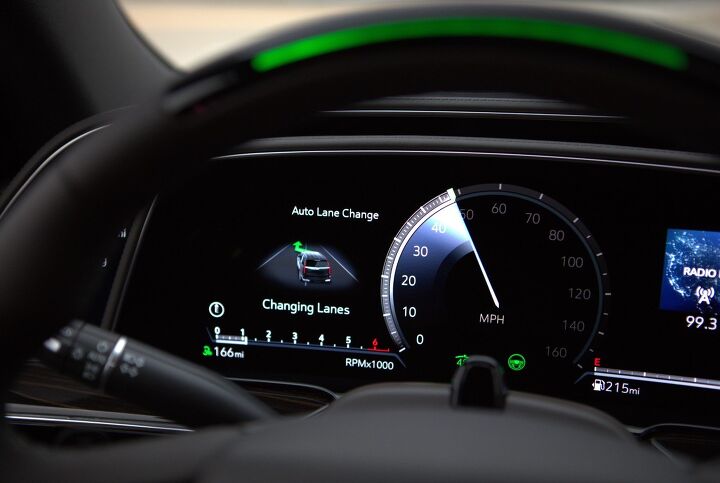

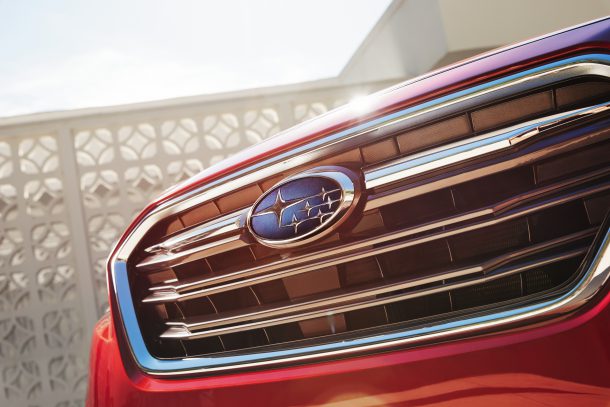

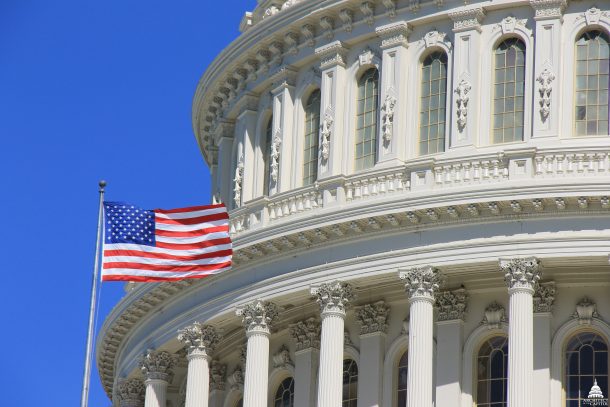
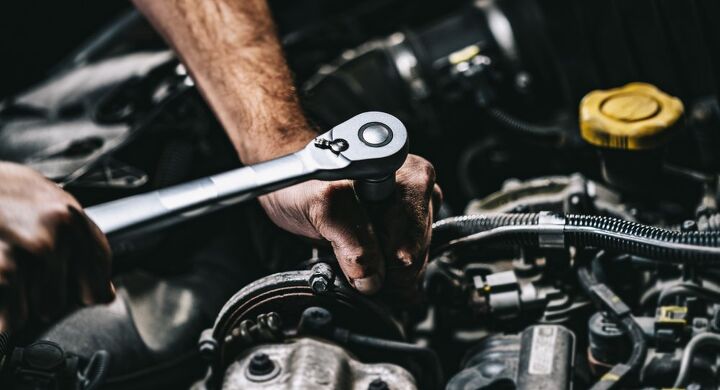
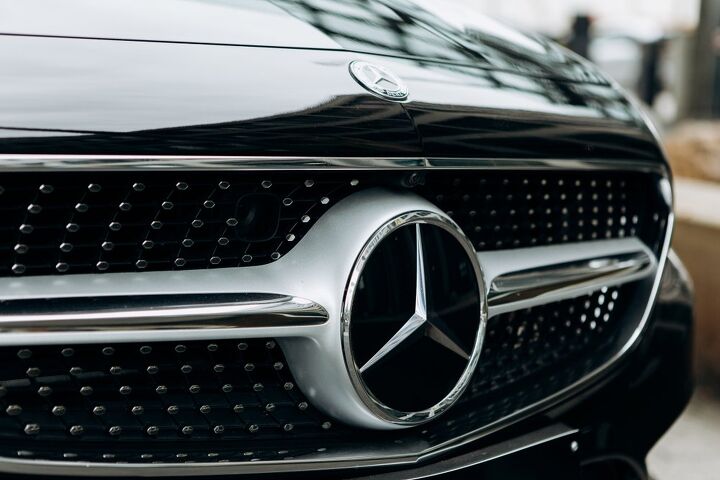
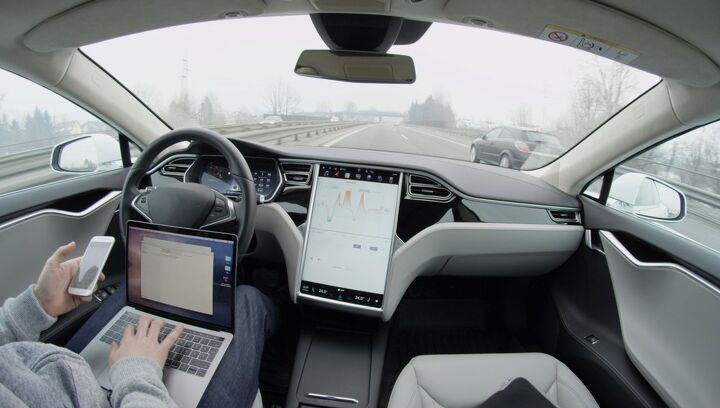

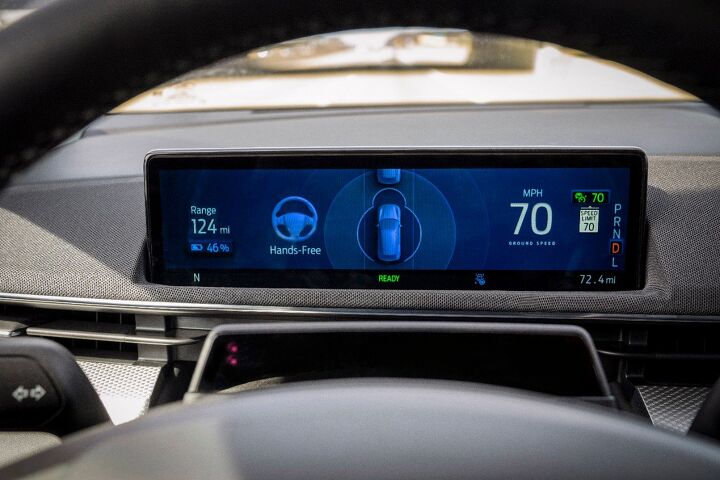













Recent Comments